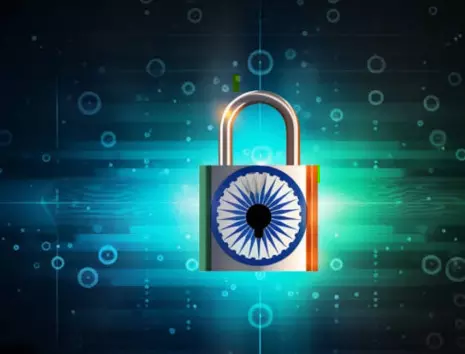Gaping loopholes

In an era dominated by digitisation, where data is hailed as the 'new gold’, the global race towards a productive and efficient digital ecosystem is undeniable. Yet, this pursuit must be accompanied by a robust data safety framework, underscoring the paramount importance of respecting individual privacy. Even before safeguarding personal data, there is an urgent need to minimise data collection and storage by limiting them to unavoidable scenarios, avoiding the perilous allure of unchecked digitisation. The trifecta of digitisation, data protection, and privacy must be accorded equal emphasis to establish a balanced and efficient digital ecosystem globally. Unfortunately, in India, this equilibrium appears to be nothing more than a mirage. The recent arrest of four individuals by the Delhi Police for selling the personal data of over 81 crore people on the dark web exposes a gaping hole in the country's digital infrastructure. This leaked data, allegedly including Aadhaar and passport details, among other things, underlines the urgent need for a robust data protection framework. It may be recalled that the case of data stealth and sale had come to light through the vigilance of an American cybersecurity and intelligence agency, Resecurity, in October. The agency revealed that threat actors were peddling the 'valid' personally identifiable information (PII) of 81.5 crore Indian citizens for a mere USD 80,000. It may be noted that PII spans a broad spectrum of data, including personal details, social security numbers, financial records, and healthcare information, all requiring meticulous protection in the digital age. Even seemingly innocuous online identifiers like IP addresses, usernames, and passwords fall under the umbrella of PII, necessitating stringent safeguards against identity theft, fraud, and unauthorised access. The threat actors had claimed that the sourced data originated from the Indian Council of Medical Research (ICMR). Earlier in the year, reports of data leaks from the CoWIN Portal and previously the sale of farmers' data from the PM Kisan website on the dark web had already signalled the vulnerability of India's digital infrastructure. Large-scale data breaches have become all too common, with alarming instances pointing to systemic weaknesses. Among these breaches, Aadhaar-related incidents stand out as the most prominent. Despite claims by the Unique Identification Authority of India (UIDAI) regarding the safety and security of Aadhaar data in the Central Identities Data Repository (CIDR), breaches have been alarmingly frequent. Even in the alleged ICMR data compromise, Aadhaar and UIDAI were repeatedly referenced to, underscoring the systemic issues that plague the Aadhaar system. The introduction of Aadhaar, with its merits and shortcomings, brought significant changes in India's digital landscape. Before regulatory intervention could address its loopholes, Aadhaar had become ingrained in daily life, and now these loopholes pose a constant threat to individual privacy and data safety. To fortify India's digital defences, a comprehensive strategy is imperative. Access controls and authentication mechanisms, including robust passwords and multi-factor authentication, are critical in limiting access to authorised personnel. Regular security audits and assessments play a crucial role in identifying vulnerabilities and ensuring prompt remediation. Secure data storage and transmission protocols, coupled with the adoption of up-to-date security technologies, contribute to a robust defence against potential breaches. As India charges forward on the digitisation trail, an efficient and cautious approach is non-negotiable. Data, the new-age wealth, must be utilised judiciously to prevent its misuse. Failure in doing so would be a grave folly on the part of government agencies. The urgency lies in establishing a resilient data protection framework that safeguards individual privacy, secures sensitive information, and fortifies the digital infrastructure against the rising tide of cyber threats. Only through such concerted efforts can India navigate the digital abyss, harnessing the benefits of the digital era while also safeguarding the integrity of its citizens' data.



